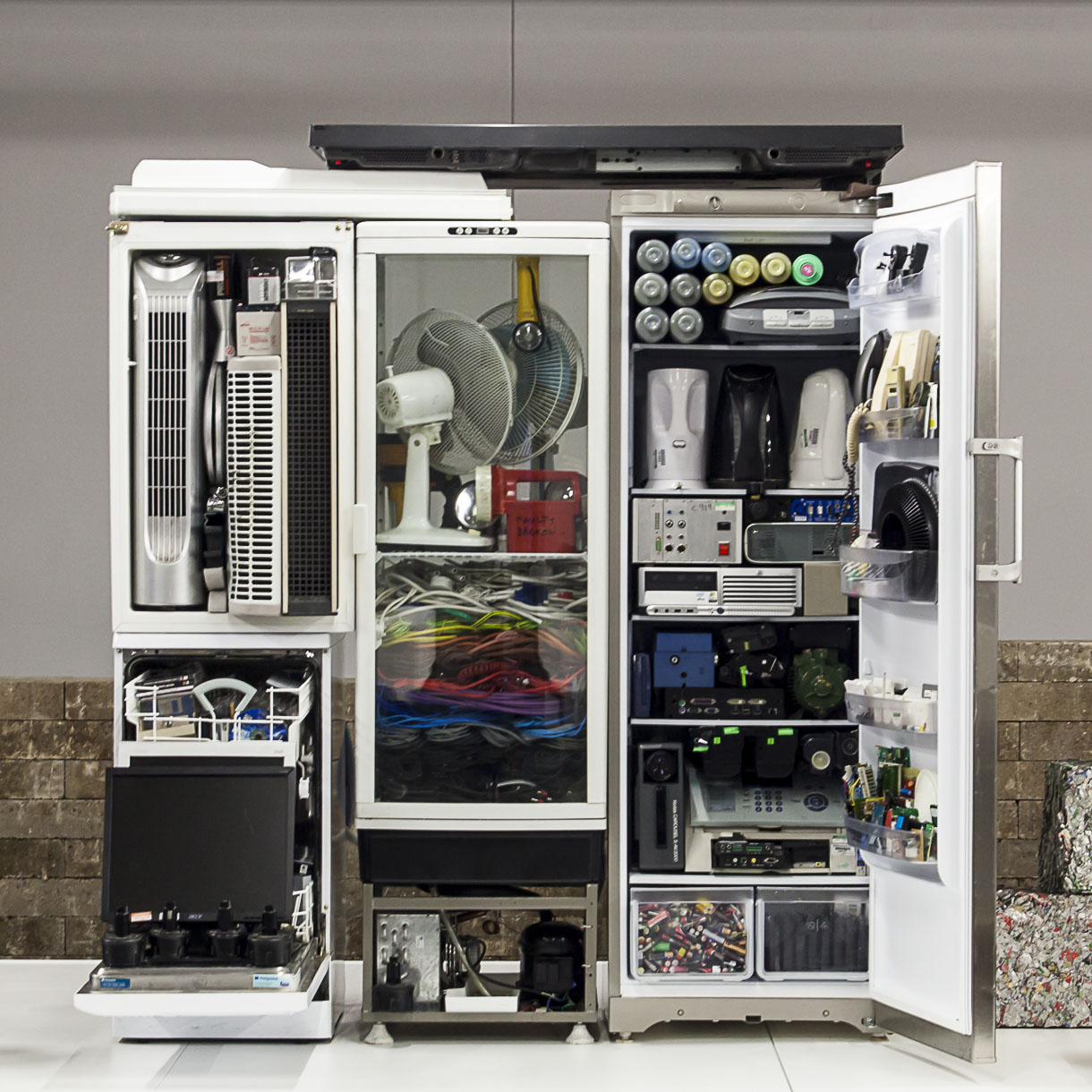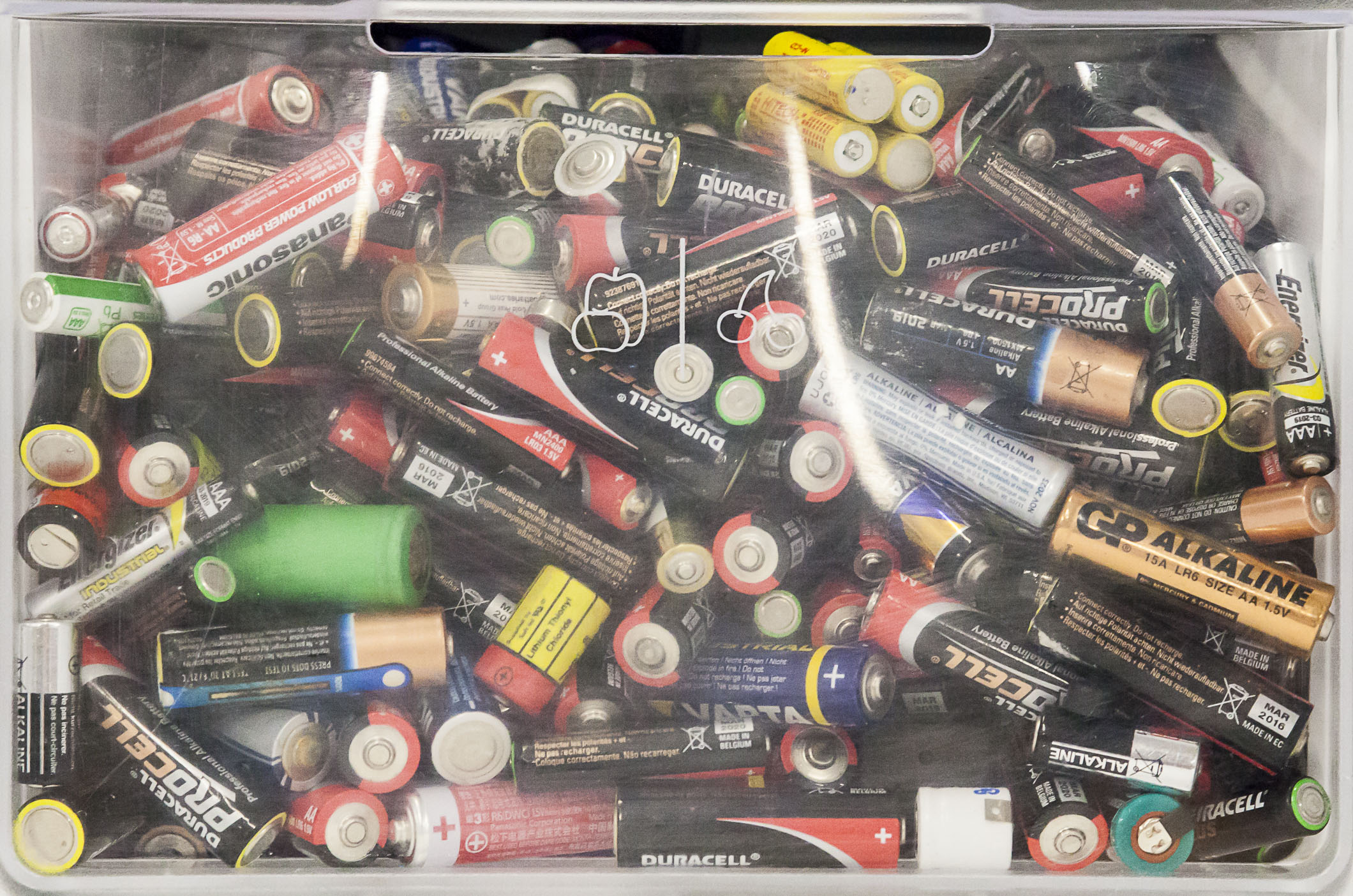Sarah Harvey, Project Curator of The Rubbish Collection, talks to Dr Philip Morton, Chief Executive of REPIC about the challenges of dealing with growing volumes of electrical and electronic waste.
REPIC is the largest not-for-profit WEEE (Waste Electrical and Electronic Equipment) recycling scheme in the UK. Instead of letting valuable or harmful waste and scarce raw materials go to landfill, REPIC’s job is to recover and transport used electrical goods and batteries to specialist treatment plants. Upon arrival at the plant, the WEEE waste can be safely handled and recycled into new usable raw materials.
What is WEEE waste?
Every year, people in the UK buy around 1.5 million tonnes of electrical and electronic equipment, like toasters, TVs, washing machines and computers. We throw away about one million tonnes of equipment, so WEEE waste is one of the fastest growing waste streams in the UK and in the EU. It’s important that we take action now to stop it from piling up.
Some of the components used to make electronic goods can be hazardous and harmful to the environment, while others can be recycled and reused. Some are even precious and contain gold, silver, indium or palladium. It’s amazing to think that WEEE contains 40 times more gold than gold ore!

What are the biggest challenges faced by the industry in recycling and recovering these materials?
A big problem is the difficulty in separating the complex scarce trace metals using the technology currently available. Different proportions of trace materials are present in different bits of WEEE and some materials bind together, making separation a challenge. At present, only a tiny percentage of these metals is captured in the recycling process, so it isn’t sustainable.
What can people do to help?
Just as we separate our plastic bottles and tins from paper and compostables, we need to separate our old electrical appliances and take them to a local recycling centre.
As with electricals, it’s easy for batteries to end up in landfills if the proper recycling channels are not used. Batteries contain chemicals that can be hazardous if released into our soil, water and air.

But there is an alternative. You could save your batteries and take them to special battery bins at shops, schools and recycling centres. This ensures the batteries are recycled responsibly.
Our top three tips are:
- Repair or re-use used electricals if possible
- Recycle, but don’t make a special trip (check our website www.responsible-recycling.co.uk).
- Choose energy and eco-efficient products where possible when buying replacements
What do you think the industry will be like in 50 years time?
To meet the new EU directive we need to recycle 85 percent of WEEE generated in the UK by 2018. The value of WEEE will be higher as there will be less rare metals and raw materials to extract from the Earth. Advances in technology will mean that electrical goods will be even lighter, more compact and flexible. Think projected keyboards, flatter TV screens – we’re already seeing roll up TV screens – so expect more to come.